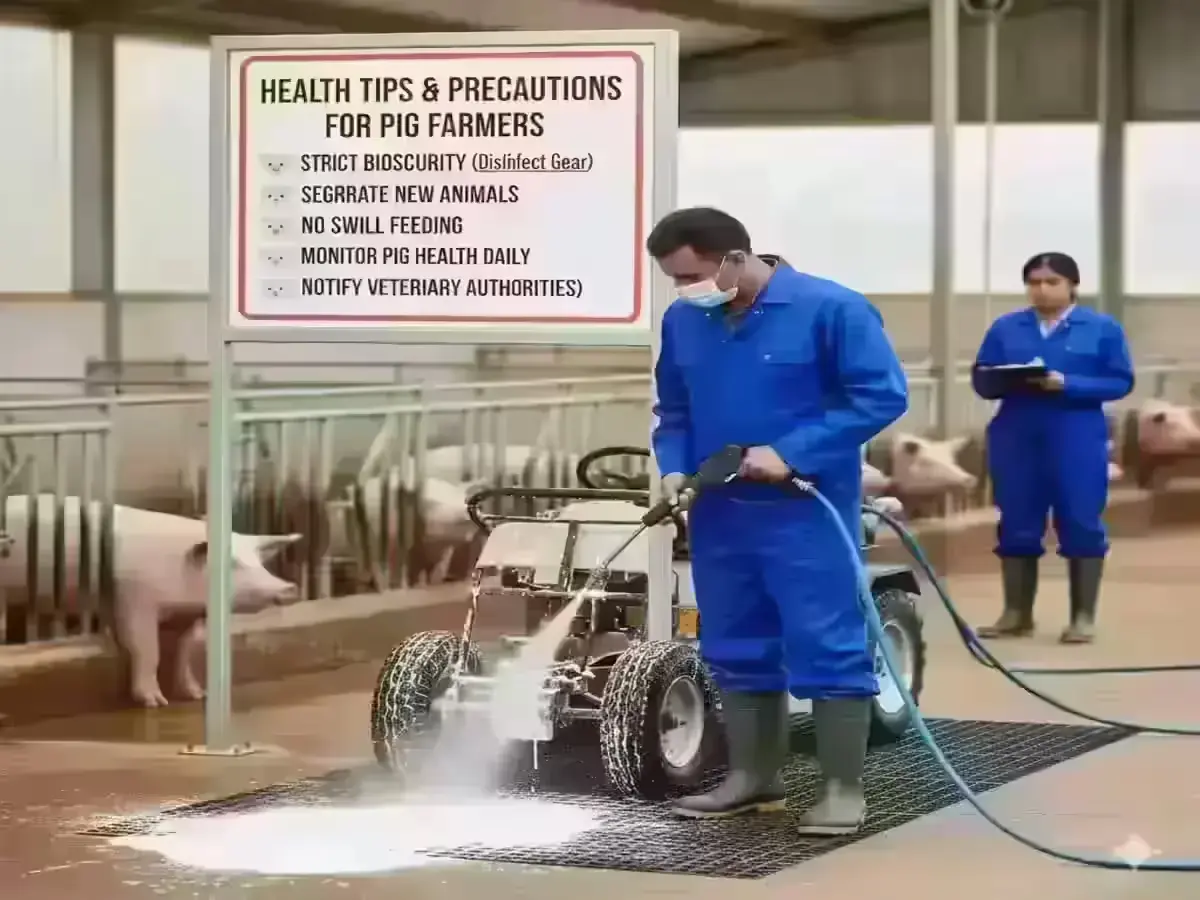Quick Take: African Swine Fever has been confirmed at a farm in Kumarakom, Kottayam. While it doesn’t affect humans, the disease is serious for pigs. Here’s what farmers and residents should pay attention to.
Swine Fever Strikes Kumarakom – What You Should Know
About African Swine Fever
Disease Name & Outbreak in Kerala
Recently, an African Swine Fever outbreak at Kumarakom (in Kottayam district) was confirmed by authorities. The local administration imposed a 1-kilometre “disease-affected zone” and a broader 10-kilometre surveillance zone around the farm. Pork sales and transport of pigs in that area have been temporarily suspended as precaution.
Health Tips & Precautions for Pig Farmers

- Strict biosecurity: disinfect boots, tools, vehicles before entering pig areas.
- Segregate new pigs or animals; avoid mixing populations.
- Avoid feeding swill (leftovers or food waste) or untested feed sources.
- Restrict movement: don’t transport pigs, pork, or feed in or out of suspicious zones.
- Monitor pig health daily — look for fever, weakness, loss of appetite, skin reddening, bleeding, or sudden death.
- Immediately notify veterinary authorities if symptoms appear.
Fitness & Animal Strength
In pig farming, “fitness” means healthy animals, strong immunity, and good living conditions. Even though ASF is a viral disease, maintaining cleanliness, nutrition, proper ventilation, and minimizing stress helps pigs better resist infections in general. These practices won’t prevent ASF fully, but they improve overall herd health.
Advantages & Challenges
There are no advantages to ASF itself — it’s a harmful disease. But responding effectively yields benefits:
- Early detection can limit spread and reduce losses.
- Strong preventive systems (biosecurity, surveillance) can protect unaffected farms.
Challenges include:
- No vaccine or cure currently available.
- Rapid spread among pigs via contact, contaminated tools, transport, feed, or wild boar.
- Economic loss for farmers due to culling and trade bans.
- Managing public fear even though humans aren’t at risk.
Advice for Communities & Residents
- Don’t consume pork from suspicious or unregulated sources in affected zones.
- Support livestock authorities in containment measures.
- Follow official updates — local government will announce safe zones, trade permits, and control strategies.
- Farmers should document movements, livestock health data, and compliance to reporting systems.
Disclaimer
This article is for general awareness only and does not replace veterinary or official guidance. Always consult local animal health authorities for diagnosis, control, and response. The content here should not be treated as professional medical or veterinary advice.
FAQ
Q: Can African Swine Fever affect humans?
A: No. ASF affects only pigs and does not infect humans.
Q: What are early signs in pigs?
A: Sudden death, fever, loss of appetite, weakness, skin reddening, bleeding, or respiratory distress.
Q: Is there a cure or vaccine?
A: Not yet. Prevention and containment are the only current options.
Q: What should pig farmers do now?
A: Increase biosecurity, limit movement, monitor animals, and report suspicious symptoms immediately.